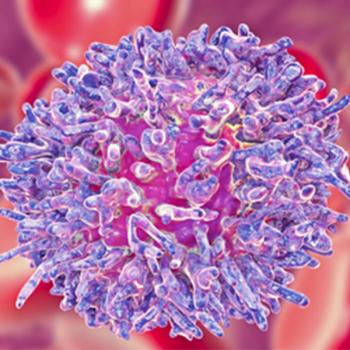
As CAR T-cell therapy expands to solid tumors, oncology nurses play a key role in monitoring, educating, and supporting patients.

Amanda Brink is a nurse practitioner at the University of Texas MD Anderson Cancer Center. When she is not tending to patients in the hospital or clinic, she finds great satisfaction in crafting content to enlighten the public and her fellow nurses about a range of health topics.

As CAR T-cell therapy expands to solid tumors, oncology nurses play a key role in monitoring, educating, and supporting patients.

Nurses play a key role in helping patients with cervical cancer weigh the risks and benefits of radiation and concurrent chemotherapy.

Integrating PRO tools in survivorship care may help oncology nurses address ongoing emotional and physical needs of ovarian cancer survivors.

Understanding which patients may benefit from CLDN6-targeting immunotherapy and recognizing potential adverse effects is essential for oncology nurses.


Oncology nurses can ensure patients with non–small cell lung cancer receive the optimal treatment quickly by understanding comprehensive genomic profiling.

Oncology nurses can assess patients’ risk factors and advocate for preventive strategies that protect kidney function during cisplatin therapy.

Oncology nurses can help patients understand this novel mechanism of action and its potential as a treatment option.

Oncology nurses can play a key role in educating patients and supporting clinical trial participation for this new treatment option.

Oncology nurses can help advocate for AI-assisted diagnostic improvements.

Oncology nurses can encourage clinical trial enrollment for patients with anaplastic thyroid cancer, a rare and aggressive cancer type.

Oncology nurses can support patients facing financial toxicity by offering guidance on available resources and providing emotional support.

Oncology nurses can enhance endometrial cancer recovery by fostering strong social support networks and improving communication with the patient.

Oncology nurses play a key role in advocating for metastasis-directed therapy in prostate cancer.

Oncology nurses and APPs play a key role in educating patients on BREAKWATER study findings and their impact on BRAF-mutant CRC treatment.

Similar to financial toxicity, time toxicity can have a profound impact on a patient’s quality of life.

Oncology nurses can provide patients with information regarding the risks and benefits of these medications in cancer treatment.

Oncology nurses can educate patients on the benefits of subcutaneous administration, including reduced time in the infusion center.

Oncology nurses can educate patients about the potential indications for oncolytic virus therapy and connect them to available clinical trial opportunities.

Oncology nurses can educate patients on the implications of these findings

Pharmacologic strategies may be able to prevent abnormal uterine bleeding in patients undergoing stem cell transplant.

Pharmacologic strategies may be able to prevent abnormal uterine bleeding in patients undergoing stem cell transplant.

Oncology nurses play a crucial role in monitoring the severity and frequency of treatment-related symptoms, particularly nausea.

Oncology nurses are instrumental in assessing cancer-related fatigue and educating patients about potential interventions.

Oncology nurses play a crucial role in educating patients about the significance of liquid biopsy in diagnosis and its use in evaluating resistance.

Oncology nurses can utilize risk assessment to predict patients at increased risk for cisplatin-induced acute kidney injury.

Oncology nurses can provide patient and provider education about the benefits of stepped palliative care.

Nurses can educate patients on dietary habits that may increase colorectal cancer risk.

Oncology nurses can help optimize quality of life in patients by addressing interrelated symptom clusters.

Oncology nurses can educate patients about the availability of pre-exposure prophylaxis for preventing COVID-19.

Published: April 14th 2025 | Updated: April 16th 2025

Published: June 24th 2025 | Updated:

Published: November 23rd 2023 | Updated:

Published: March 14th 2024 | Updated:

Published: June 16th 2025 | Updated:

Published: October 18th 2023 | Updated: